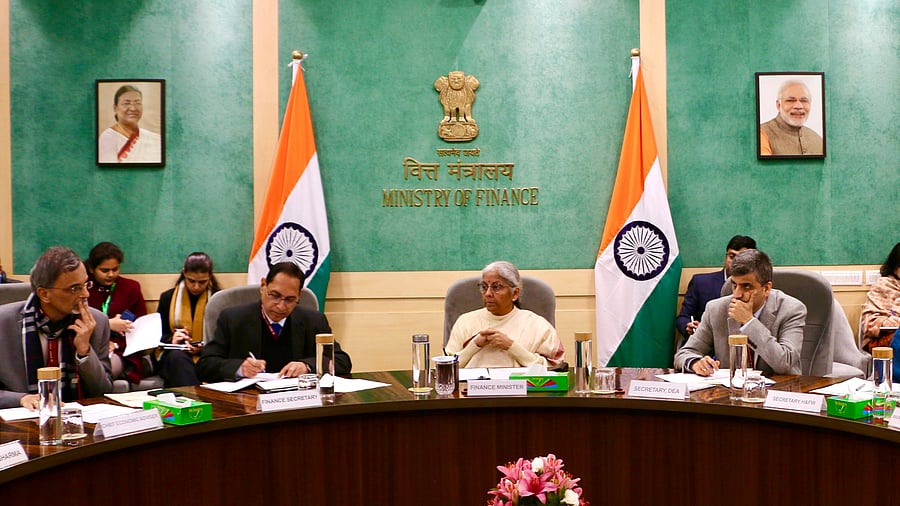
New Delhi: India Inc on Monday pitched for continued push towards the public capital expenditure (capex), reduction in excise duty on fuel and income tax relief to the middle class in order to boost consumption, a move considered crucial for reviving economic growth after an urban slowdown in 2024.
Leading industrialists, including the head of industry chambers the Confederation of Indian Industry (CII), the Federation of Indian Chambers of Commerce and Industry (FICCI), the PHD Chamber of Commerce and Industry and the Associated Chambers of Commerce and Industry (Assocham), made their suggestions during a pre-budget consultation meeting with Union Finance Minister Nirmala Sitharaman.
“Industry has proposed tax exemptions for individuals earning up to Rs 20 lakh annually. Reduction in excise duties on petrol and diesel could alleviate the financial burden on consumers and businesses alike,” CII President Sanjiv Puri told reporters after the meeting.
The CII has suggested that the government capex should be enhanced by 25% over the Rs 11.1 lakh crore budgeted for the current financial year. Continued focus on capex and fiscal consolidation will have a multiplier impact on the economy, including sectors such as construction and real estate, it said.
In order to give relief to the middle class, the CII has called for reduction in excise duty on fuel and lowering of marginal tax rates for personal income upto Rs 20 lakh per annum.
FICCI suggested consolidation of the existing multiple TDS/TCS rates into a simpler two or three-tier system, while PHD Chamber has pitched for abolition of Securities Transaction Tax.
Assocham President Sanjay Nayar emphasised on the need for tax relief for individuals and micro, small and medium enterprises (MSMEs).
He suggested a slew of measures to encourage investment, including extending the scope of presumptive taxation to MSMEs and new age businesses like data centres, data hosting and cloud computing.
According to Nayar, these measures would help simplify compliances in the hands of such taxpayers by computing income on a predetermined basis, thereby reducing the apprehension of tax disputes and litigation.
The PHD Chamber suggested a reduction in tax for individuals and Limited Liability Partnership (LLP) firms to 25%, saying it would “not only ease the financial burden on businesses and individuals but would also stimulate investment and economic activity across sectors.”